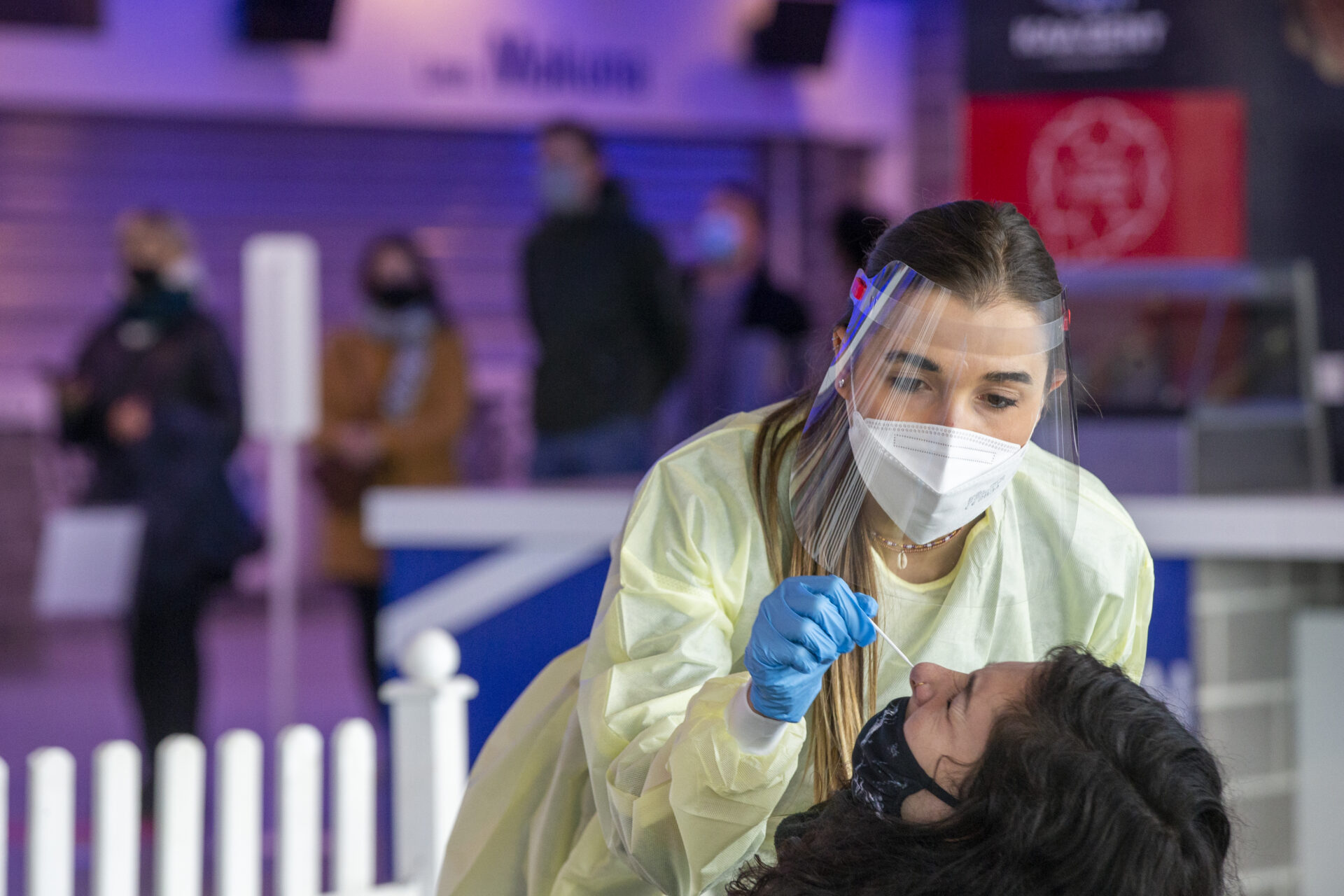The so-called autumn wave of Covid-19 infections is continuing to wash across Belgium as the number of new cases and hospitalisations every day is once again rising, according to figures published by the Sciensano Institute of Public Health on Friday morning.
In the last seven days, an average of 104 patients suffering from Covid-19 were admitted to hospitals each day (+24%), up from an average of around 94 hospitalisations on Tuesday. This figure only includes the number of people hospitalised because of the virus.
"The eighth Covid-19 wave is making itself increasingly felt in hospitals, with a further rise in, hospital admissions," virologist Steven Van Gucht at a press conference on Friday. "The predicted wave indeed seems to be developing, and thus may peak in the second half of October."
The total number of people infected with the virus in Belgian hospitals increased from 1,294 on Tuesday to 1,427 (+32% since last week), while the number of patients being treated in intensive care remained stable at 74.
This number does include patients admitted with a different condition who later tested positive.
Cases, tests and deaths
An average of 2,945 new daily infections were identified between 27 September and 3 October, up by 19% from the previous week, the highest figure seen in two months.
Infections are increasing 7% faster among the working population, and as is often the case, are rising most sharply among healthcare providers in hospitals. In primary and secondary schools, as well as among train staff, cases have also risen sharply.
"At work, absenteeism will increase further, while short-term absenteeism is already higher than last year," Van Gucht said.

Credit: Belga / Nicolas Materlinck
The average number of tests taken per day remained stable at around 12,800, but the positivity rate has risen to 23.8%, meaning almost one in four tests has a positive result.
Omicron BA.5 remains the dominant strain, accounting for 90.7% of all infections. The strain is said to be no more infectious than the other Omicron subvariants but is effective at circumventing people’s accumulated immunity.
In the same week, the number of deaths caused by Covid-19 has climbed to a daily average of 4.6 (+10%). The total number of deaths in Belgium since the start of the pandemic is 32,716, however, this includes people who died of another cause but who were infected, meaning it may be an overestimate of Covid-19 deaths.
Reproduction rate, incidence, and total vaccinations
The reproduction rate (the average number of people that contract the virus from each infected person) sits at 1.14. When this figure is above 1, it means that the epidemic is spreading more rapidly in Belgium.
The incidence (the number of new cases per 100,000 inhabitants) has increased to 327 over the past 14 days.
As of Tuesday, more than 7.2 million people received a booster dose of the vaccine, representing 76% of over-18s and 62% of the entire population, while around 2.33 million people have received a second booster dose – equivalent to 20% of the total population.
"All the figures still show that a booster dose significantly reduces the risk of hospitalisation," Van Gucht said, encouraging especially those over 50 to get their autumn vaccine.
Adults across all regions in Belgium can now get their additional booster shots (without invitation in Wallonia and Brussels). Find out why this latest jab is important.

